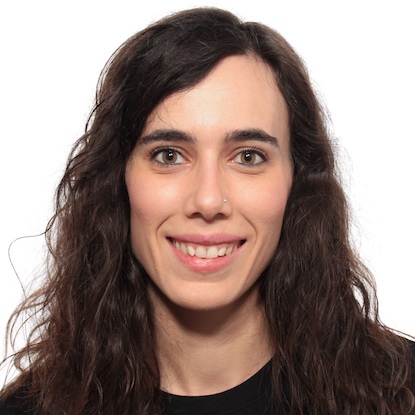
Laura Román Rivas
| AREA | RESEARCH GROUP | INSTITUTE |
|---|---|---|
| Food Technology | Innograin |
I studied Technical Engineering in Agri-Food Industries and Master in Food Quality at the University of Valladolid, where I also obtained my PhD in Food Engineering in 2018, obtaining the Extraordinary PhD Award for the thesis entitled "Role of starch gelatinization and fragmentation in extruded flour functionality". During my PhD, I was a visiting student at the prestigious Whistler Center for Carbohydrate Research at Purdue University (USA) for 7 months. After my doctoral thesis, I joined the School of Engineering at the University of Guelph (Canada) as a postdoctoral researcher, where I continued my research on carbohydrate biochemistry and plant-based food processing through extrusion for 2 years and 5 months. After my time in Canada, I worked at the food department of Aarhus University (Denmark) for 1 year and 9 months, thanks to a postdoctoral project funded by the Novo Nordisk Foundation, of which I am also principal investigator, broadening the scope of my research to understanding the functionality of plant proteins. In 2021, I won the prestigious L'Oréal-UNESCO For Women in Science research award, as one of the top 3 young women scientists in Denmark. In 2022, I received the internationally recognised Nils Foss Talent Prize as a young research talent in the application of analytical technology to improve the quality of food systems.
Finally, in January 2023, I left my position in Denmark to return to Spain as a Ramón y Cajal researcher at the University of Valladolid.
My research aims to elucidate the molecular, supramolecular and conformational mechanisms responsible for food structure formation, connecting the fields of food biochemistry (especially glycomics), food processing and materials science, in order to design functional and sustainable foods.
Overall, my research focuses on elucidating the relationship between the structure and function of food polysaccharides, including their digestion and behaviour in mixtures with plant proteins and the elucidation of their complex hierarchical structure using advanced chromatographic, thermo-rheological, calorimetric and spectroscopic techniques.
My extensive background in the biochemistry of starch, the main carbohydrate in our diet, and in the processing of cereals, legumes and plant proteins by hydrothermal treatments, including extrusion, are key to the understanding and development of future plant-based foods.
With a deep understanding of the mechanisms that lead to biomolecular interactions between plant proteins and carbohydrates during processing, we will be able to process plant materials to their full potential and rationalise their production to achieve a circular economy or minimise their environmental footprint. In this regard, I have also worked on the development of sustainable crops, by identifying more protein-rich and climate-robust crop varieties capable of withstanding climate change.
My medium- to long-term vision is to be able to contribute to the design and development of the food of the future by understanding the structure-function-digestion relationships during the processing of plant-based foods. Only by knowing the details of food structure is it possible to model and design more sustainable, functional, healthy and high quality foods, both fresh and preserved.

